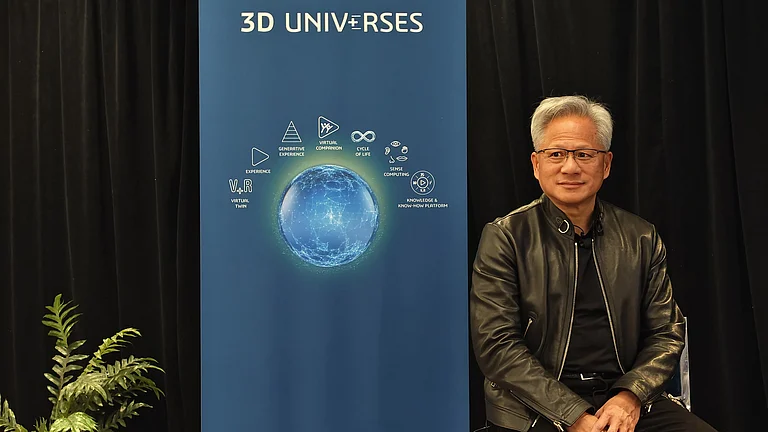One of India's biggest opportunities is to ensure that SMEs in Tier 2 cities like Bhubaneswar can harness AI to enhance productivity, said Vishal Dhupar, Managing Director, South Asia, Nvidia. The key is to take accumulated knowledge, convert it into tokens, and use that intelligence effectively, he added.
Dhupar further said that today, AI factories can be set up to capture and process this experience. Just like water enters a machine and is converted into steam or electricity through a dynamo, AI can transform tokens into intelligence. This intelligence can then optimize various aspects of a business, such as identifying the best supply chain strategies, said Dhupar.
He further added that businesses won’t have to handle this alone—digital replicas of themselves will operate in AI-powered environments. Just to give an example, an AI-driven system might identify a better business opportunity in Gurgaon, even if a company is based in Indore or Bangalore. It could then negotiate optimal pricing, accelerate sales, and reinvest profits more effectively—leading to smarter, faster, and more profitable operations.
Speaking about data centers, Dhupar added that currently India’s data centres account for just 0.5% of the country’s total power consumption, compared to the global average of 3%. This figure is projected to rise to 9% worldwide, and India must scale up to match at least the global baseline of 3%, Dhupar noted. With cutting-edge computing infrastructure, India has the potential to leapfrog in this transition.
Another key advantage for India is AI’s ability to bridge language barriers. "We can now use machines without needing to learn their language—AI enables interaction in one’s own native tongue," he added.
“For the first time in human history, we are witnessing intelligence that is being built rather than evolved,” Dhupar added, underlining AI’s revolutionary impact.
Dhupar was speaking at an event in New Delhi. The event titled C³: Climate, Circularity, Community, is a flagship sustainability event that is organized by Outlook Planet. The intent of the event is to make India’s SMEs adopt sustainable practices, in line with the nation’s goals of achieving net neutrality. Further, it also intends to improve competitiveness amid evolving climate regulations. The event was conducted in partnership with management consulting firm Primus Partners.
This comes at a time when MSMEs have been increasing their focus on sustainability. An international survey released by DHL Express on December 2024, indicates that around 95% of Indian SMEs consider sustainability as very important for their business.
The government has also launched various initiatives to support this, including the approval of $215.6 million by the Green Climate Fund to assist climate action in India's MSME sector. The focus for the same is on encouraging low-emission and climate-resilient technologies.
































